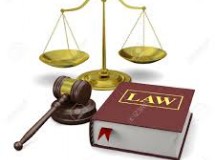- The Standard Jury Instructions explain the general principles of the law related to the case being heard. For example, the instructions give the definition of the elements (parts) of the crime and explain that the judge will decide which laws should be applied in a specific case, and that the jury's responsibility is to decide the facts of the case.
- The presiding judge reads standard instructions to the jury before, during and after the trial. For example, before the trial the judge reads the charge, explains the jury's responsibility and describes how the trial will be conducted.
- During the criminal trial the presiding judge instructs the jury about bench conferences, stipulations and how they should treat evidence of other alleged crimes or wrongs the defendant is accused of committing. After all the evidence is presented, the judge instructs the jurors about closing arguments.
- The presiding judge instructs the jurors on penalties, lesser included crimes, defenses (such as insanity, alibi, intoxication, entrapment or justifiable use of force), reasonable doubt, weighing the evidence, rules for deliberation and the verdict.
- The attorneys who are trying the case request specific instructions be read to the jury. The judge decides whether the requested instructions will be read and if so whether they will be modified and if any additional instructions will be read. Attorneys can appeal if there are errors in the instructions.
General Principles of Law
Prior to the Trial
During the Trial
Final Charge
Requests for Instructions
SHARE








































